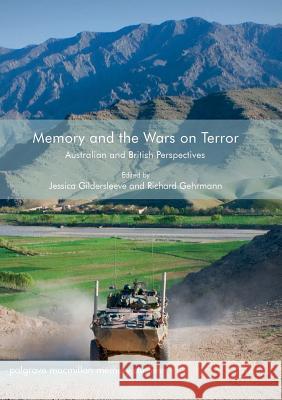Memory and the Wars on Terror: Australian and British Perspectives » książka
topmenu
Memory and the Wars on Terror: Australian and British Perspectives
ISBN-13: 9783319860480 / Angielski / Miękka / 2018 / 283 str.
Kategorie:
Kategorie BISAC:
Wydawca:
Palgrave MacMillan
Seria wydawnicza:
Język:
Angielski
ISBN-13:
9783319860480
Rok wydania:
2018
Wydanie:
Softcover Repri
Ilość stron:
283
Waga:
0.35 kg
Wymiary:
21.01 x 14.81 x 1.57
Oprawa:
Miękka
Wolumenów:
01
Dodatkowe informacje:
Wydanie ilustrowane











